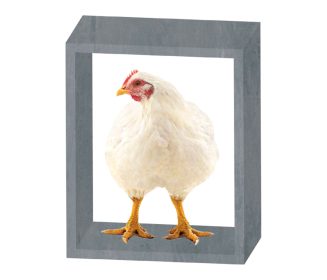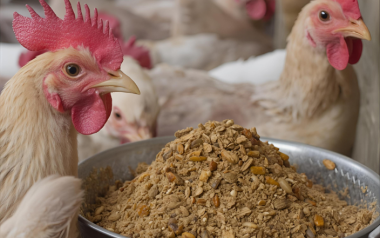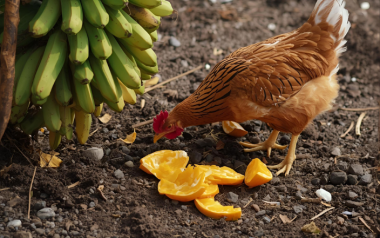Sources: Available upon request.
28 May 2024
The importance of the first days in broiler chicken rearing
During the initial week of rearing, broiler chickens experience rapid growth, gaining up to five times their starting weight. Proper management during these early days is essential to ensure healthy development and optimal performance.
During the initial week of rearing, broiler chickens experience rapid growth, gaining up to five times their starting weight. This critical period constitutes approximately one-third of a standard broiler chicken’s life. Proper management during these early days is essential to ensure healthy development and optimal performance.
Key criteria for successful brooding in the first week:
- Thermally suitable environment:
- Broiler chicks are homoeothermic animals, meaning they must maintain a constant body temperature between 40°C and 42°C.
- In the first week, chicks lack the ability to efficiently respond to lower temperatures. Therefore, monitoring the air temperature across the entire area accessible to the flock is crucial.
- Recommendations for temperature:
- In barns with external heating systems (without in-house brooder heaters), maintain 32°C at room temperature.
- In buildings equipped with in-house brooder heaters, maintain 30°C at room temperature and 38–40°C under the brooders.
- Litter temperature is equally important. Aim for a surface temperature of approximately 30°C.
- Proper equipment calibration before chick arrival ensures a successful start.
- Stimulating feed consumption:
- Early feed intake is a key indicator of the starting period’s quality.
- Monitor feed consumption rates:
- 2 hours after arrival: 75% of chicks should have a full crop.
- 12 hours: 85%.
- 24 hours: 95%.
- 48 hours: 100%.
- Spatial distribution of chicks indicates thermal comfort:
- Clustered around heating points: cold.
- Against walls or away from heaters: potentially too warm.
- Minimizing pododermatitis and ensuring humane treatment:
- Pododermatitis (footpad dermatitis) can occur due to poor litter quality or excessive moisture.
- Regular litter management and maintaining appropriate litter temperature help prevent pododermatitis.
- Humane treatment includes providing a comfortable environment that promotes growth and well-being.
Why the first seven days of rearing matter:
Over recent years, more emphasis has been placed on the broiler chicken’s first seven days of life. During this period:
- 80% of the energy is allocated to growth.
- Only 20% is used for maintenance. This underscores the critical role of the early days in shaping the chicken’s overall development.
There are 5 key points to help ensure broiler performance in the first week:
- Correct environmental conditions such as temperature, humidity and carbon dioxide level to stimulate feed intake.
- Review feed access.
- Monitoring feed intake by checking at the feeders.
- Pay special attention to feed intake after four days when they occur.
- Try to reduce the percentage of small chicks by seven days by getting the necessary feed intake early.
In summary, meticulous attention to environmental conditions, feed intake, and overall chick well-being during the first days of broiler chicken rearing significantly impacts their growth trajectory and overall health. By ensuring optimal conditions, we set the stage for successful broiler production.






































